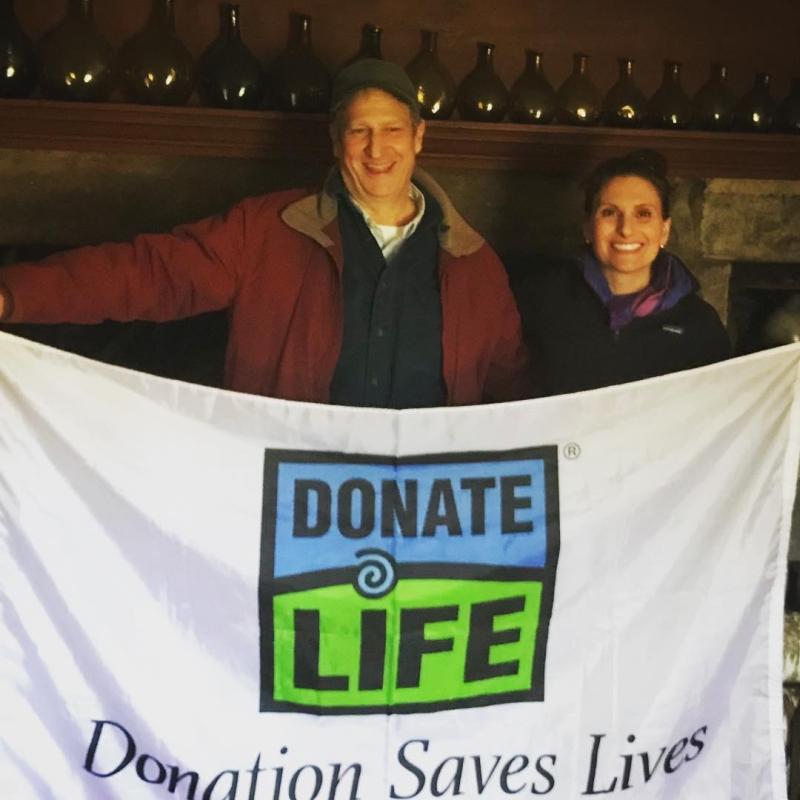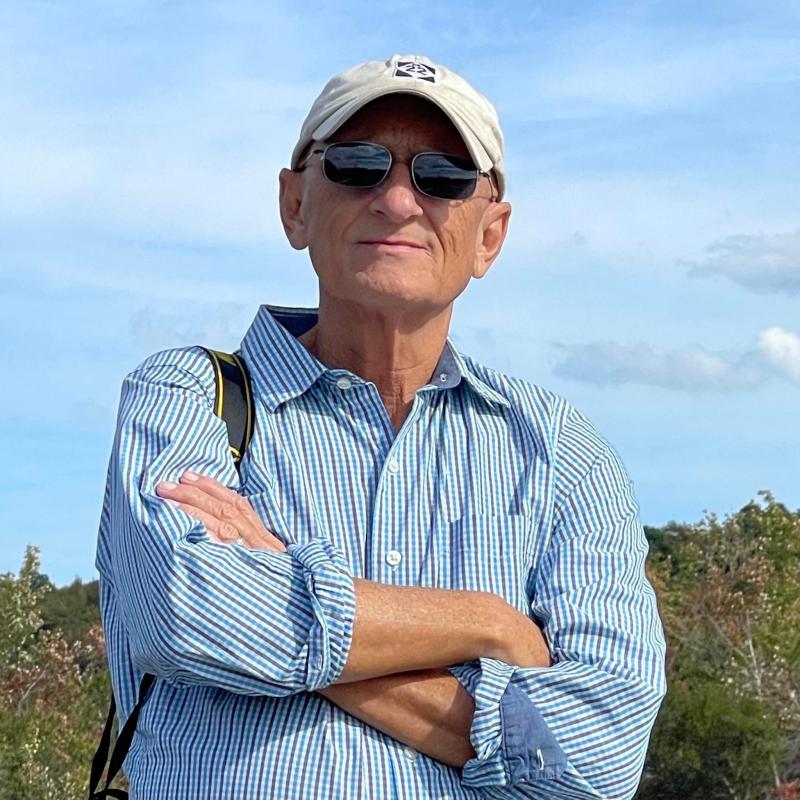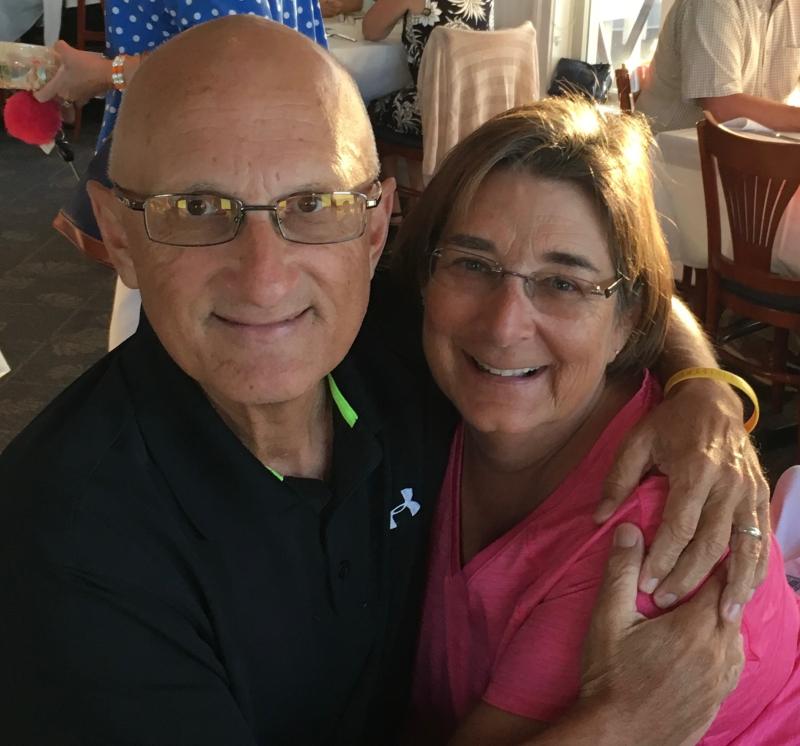Cape Region organ donor steps up to save man she didn’t know

April was National Organ Donor month, and while a lot of attention is paid to the lifesaving gift at this time, it is important to remember there is a year-round need.
These days, most people know someone among their family, friends or co-workers who needs a healthy, functioning organ. Loved ones are often willing to do whatever it takes to help someone they know, but various factors can prevent them from donating.
One option is for paired donors and recipients to donate and trade off so the recipients receive a suitable organ, just from a different family than their own. The other is what is known as altruistic organ donation. CK Allen, a busy mom in the Cape Region, decided in 2018 she needed to see if she could help someone she didn’t know.
“The bottom line is that it's the easiest thing you could ever do, or at least that was my experience,” Allen said. “I've had three C-sections and a couple of other surgeries, and this was the easiest one I've ever had in terms of the process.”
Altruistic donation is when the donor is certified to not have any ties or motivations behind giving the organ other than wanting to help the person in need, who is a stranger to them.
“I saw his flyer – a PDF kind of thing in social media – and I turned to my husband and I said, ‘Would you be pissed if I gave a kidney to a stranger?’” Allen said.
Her husband Scott replied “no” but wondered why CK would want to do something like that.
CK said when she started looking into the process, she ran into some obstacles. “The hospital at which I donated does not have a lot of altruistic donors,” she said. “They have almost no living donors at all; they're almost all cadaver donors, people who check the box on [their] license.
“Toward the end, you meet with a social worker and a psychiatrist, because it's still considered crazy to give an organ to someone you don't know,” CK said.
If Hartford Hospital did have a living donor, it was almost always a direct family member. Even the psychologist at the time struggled with the motive-clear donation.
“She couldn't really wrap her head around the fact that I really didn't know this guy, I didn't have a financial motive, and the fact that I really wasn't scared,” CK said.
CK said she wondered why someone wouldn’t want to help out this way. Luckily, the seasoned social worker was familiar with the concept, and her recommendations led to a panel of healthcare professionals approving the surgery after it was discovered CK was a match for Norman Heckler Jr., a middle-aged man.
Before she met with the panel, CK underwent several examinations and tests to determine the viability of her kidney.
“They first take a blood type, basic stuff, because if you've got serious health problems, you're immediately disqualified as a donor, but if you're reasonably healthy, then you fill out a long questionnaire about your life,” CK said. “You get ultrasounds of every organ and CT scans – it's the best physical I ever had, because if there is anything wrong with you, you will find out, and they do everything.”
CK said the tests are not invasive, but they do require a lot of radiology and blood tests to ensure the donor is healthy and the right blood type.
“Your blood type is the most critical factor. Of course, those antibodies also really matter, but your blood type, if you're not even the same blood type, forget it,” CK said. “He was O positive, and so O positive can only get from O positive; you can give to anyone, but we can only get from each other.”
Heckler had the odds stacked against him, since younger patients are usually given a higher priority on the organ donation list. However, since CK offered one of her kidneys directly to him, he was in line for a new lease on life.
“He's up against 12- and 13-year-old children who are obviously going to the front of the list, because they have a long life in front of them, and he was mid-50s by then,” CK said. “Even though he had a hereditary condition, he was at the back of the list.”
CK put herself in the Heckler family’s shoes.
“I thought to myself, what would I do if it were my husband who was in his mid-50s, and now he's gonna die,” CK said. “He can't work because he's doing dialysis three times a week, and holy cow, that sealed it in my head.”
CK began the donation process in January 2018 and by July of that year, the surgery was a success. She was released and ready to meet the recipient, which she said was allowed if both parties agreed ahead of time.
It marked the moment CK and Norman went from strangers to family.
“He had younger brothers who were twins that had accompanied him, and they're a great family,” CK said. “We've actually spent some time with them now. He and I chat fairly frequently; he's kind of like having an older brother, and I don't have siblings, so it's really cool to have this new family. He has since found a significant other, and I've had a chance to meet her – she's fantastic!”
With his filtration system back up and running, Norman Heckler was able to see his children graduate, and the effects were heartfelt.
CK said the donation continues a long tradition started during her childhood in Vermont.
“A teacher in my elementary school became a mentor to all the girls, because it was a small town, not a lot of opportunities, and in the ‘90s, she flew to Colorado to give a kidney to someone she didn't know,” CK said. “That was back in the days of the Wild West of donation surgery, where it was a full incision – hip to rib – a significant, huge undertaking, and she did it without thinking twice.
“A girl that I went to high school with gave a kidney to a firefighter in my hometown who needed one, and she'd never actually met him,” CK said. “There have been four women from a town of 12,000-15,000 people who have given a kidney to someone they don't really know.”
Scott could not be prouder of his wife’s actions seven years ago.
“Firemen and military, they have a chance to save someone's life every day – that's a part of what they do,” Scott said. “She had a chance to save someone's life, and I think that's really cool.”
Donation story has link to local couple’s quest
Ron MacArthur, a lifelong journalist and Sussex County resident, has been sidelined by liver disease for many months, often making simple tasks of daily life a challenge.
MacArthur, who just turned 70 in early April, has been suffering from autoimmune hepatitis cirrhosis for almost a decade. In August, he had a liver stent bypass, which was supposed to bring a brief recovery. Unfortunately, he developed a blood clot. He’s now dealing with hepatic encephalopathy, which requires a regimen of medications to control. As his cirrhosis progresses, other liver issues are appearing.
MacArthur’s doctors have told him he needs a new liver, preferably one from a living donor. His latest test numbers all but make him ineligible for a non-living donation. With a liver transplant, he hopes to make a full recovery and get back to doing the things he loves.
He especially loved his 17-plus years as a Cape Gazette reporter and photographer. “I always wanted to work at the Gazette,” he said. “Finally, all the stars aligned.”
However, as his health challenges persisted, and worsened in recent years, his ability to handle a full-time assignment load waned. In conjunction with his birthday, he recently made the choice to retire and concentrate on his transplant quest. Finding an altruistic donor like CK is one of his options.
A living donor would donate only a piece of their liver, and their own organ would grow back to a normal size. The donated piece for MacArthur would grow large enough to provide him with a normal life.
A donor’s hospital and medical expenses would be covered. To be eligible, a living donor must meet very strict requirements. Among them is that a donor must be between 20 and 55 years old, and can’t be overweight.
MacArthur and his wife Kathy O’Hanlon, who met in 2004 and married in 2014, have worked together every step of the way during his recent health troubles. MacArthur said he couldn’t have done it without her, as she often served as an advocate when his mental and physical state left him unable to communicate effectively with doctors and nurses. Out of this crisis has come a strong partnership that supports their ongoing hope for a happy outcome.
MacArthur has a daughter, Beth; son-in-law, Eric; stepdaughter Michelle Bland; and three grandchildren, Jenna and Colby, who attend Sussex Tech, and Adin, who serves in the Air Force.
Anyone interested in learning more about being a donor can check out MacArthur’s website at tinyurl.com/yezm8zwv.



Aaron Mushrush joined the sports team in Summer 2023 to help cover the emerging youth athletics scene in the Cape Region. After lettering in soccer and lacrosse at Sussex Tech, he played lacrosse at Division III Eastern University in St. David's, PA. Aaron coached lacrosse at Sussex Tech in 2009 and 2011. Post-collegiately, Mush played in the Eastern Shore Summer Lacrosse League for Blue Bird Tavern and Saltwater Lacrosse. He competed in several tournaments for the Shamrocks Lacrosse Club, which blossomed into the Maryland Lacrosse League (MDLL). Aaron interned at the Coastal Point before becoming assistant director at WMDT-TV 47 ABC in 2017 and eventually assignment editor in 2018.



















































